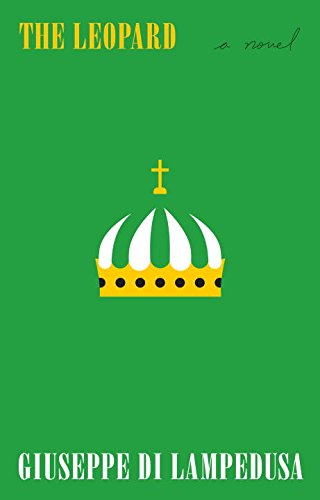Books |
The Leopard
Giuseppe di Lampedusa
By
Published: Jan 11, 2022
Category:
Fiction
Giuseppe di Lampedusa’s only novel was rejected by Italy’s most distinguished publishers, so he died in 1957 without learning that “The Leopard” would become the best selling novel in Italian history — the Sicilian “Gone With the Wind” — and that it would be named by The Observer as one of “the 10 best historical novels” and that Luchino Visconti’s 1963 film adaptation would win the Palme d’Or at Cannes.
Also: It’s one of the most beautifully written books I’ve ever read.
First, an important fact — and if you know any Sicilians who are even dimly aware of Sicily’s history, you have heard this more than once: Sicilians really don’t consider Sicily part of Italy. Yes, it is now, but not in this novel, which is mostly set in 1860, when Garibaldi had embarked on the project that would lead to Italy’s unification.
In 1860, Don Fabrizio, Prince of Salina, is in his forties, married, with several children and as many homes. His great love is astronomy, and he has made important discoveries that will win him an award from the Sorbonne. But he has little time to indulge his passion — his telescopes “were lying there quietly, like well-trained animals who knew their meal was only given them at night” — for he has family duties and political responsibilities.
Don Fabrizio — modeled after the author’s great-grandfather — is an aristocrat, but not a snob. The first sentence of the novel is a prayer said at the end of the daily service in the chapel of his palace: “Nunc, et in hora mortis nostrae. Now, and in the hour of our death. Amen.” A few pages later, a dead soldier is found in the garden, and, like Don Fabrizio, we understand what this means: Garibaldi’s revolution has reached his island. The world of Don Fabrizio’s ancestors is coming to an end. [To buy the paperback from Amazon, click here. For the Kindle edition, click here. To stream the movie — in Italian, with subtitles — click here.]
There’s good reason for the comparison to “Gone With the Wind.” The Don has daughters who must be married off. And a dashing nephew — his favorite young relative, charming and penniless — who dabbles in politics and concentrates on romance. And obligations: meals, balls, his properties. And the occasional pleasure of hunting and a few hours at a bordello.
Like Scarlett O’Hara, the Don is both a dreamer and a realist. About love: “Flames for a year, ashes for thirty.” About a rose in his garden: “The Prince put one under his nose and seemed to be sniffing the thigh of a dancer from the Opera.” About the bonfires of the invading army: “They looked like the lights that burn in a sickroom during the last nights.” About politics: “All these petty little local ‘liberals’ wanted was to find ways of making more money themselves.”
The writing is calm and measured, very much in the spirit of 1860. That’s deceptive. There’s nothing leisurely about the action — the 300 pages move fast, and the romantic strategies and social climbing are as modern as anything that makes you binge. Most of all, the level of perception is addictive. Like this, when his nephew Tancredi and his beloved Angelica encounter the Don at a ball:
The door opened.
‘Nuncle, you’re looking wonderful this evening. Black suits you perfectly. But what are you looking at? Are you paying court to death?’
Tancredi was arm in arm with Angelica; both of them were still under the sensual influence of the dance, and were tired.
Angelica sat down and asked Tancredi for a handkerchief to mop her brow; Don Fabrizio gave her his. The two young people looked at the picture with complete lack of interest. For both of them death was purely an intellectual concept, a facet of knowledge as it were and no more, not an experience which pierced the marrow of their bones.
Death, oh, yes, it existed of course, but was something that happened to others. The thought occurred to Don Fabrizio that it was inner ignorance of this supreme consolation which makes the young feel sorrows much more sharply than the old; the latter are nearer the safety exit.
You close “The Leopard” thinking: time well spent.
FUN FACT (thanks to KG)
Luchino Visconti filled the drawers in the bedroom set with bespoke silk shirts tailored specifically for Burt Lancaster. Incredulous, Burt pointed out no one would see them. Visconti: “But you will see them. You are portraying a prince and you must feel like a prince.”


